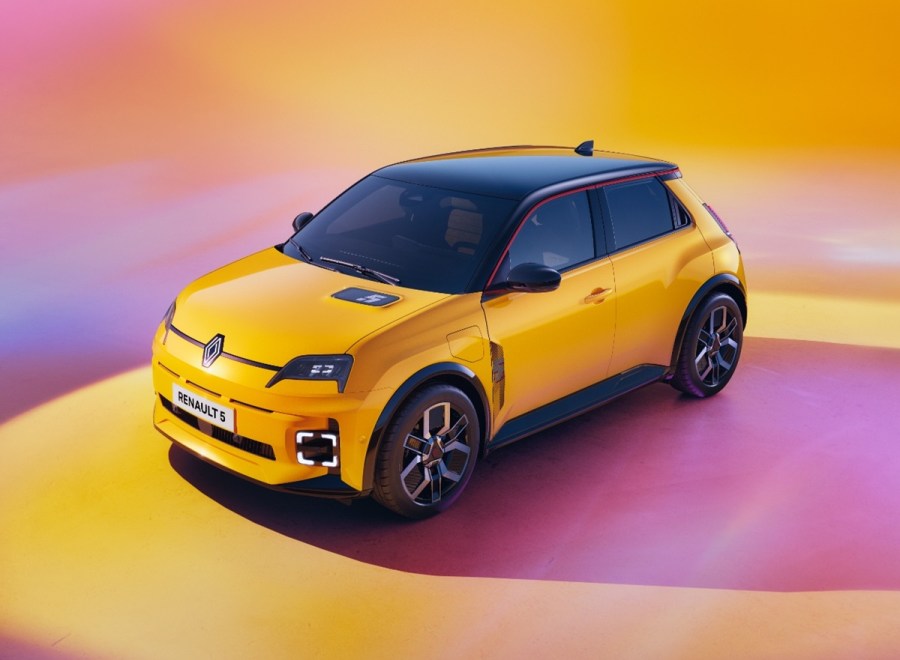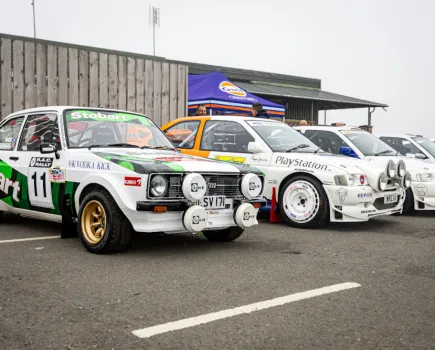After decades away, the Renault 5 returns, bearing a familiar shape with new technology underneath. Will it live up to the original icon?
It’s fair to say that in recent years, Renault has lost a bit of its identity. With characterless models like the Kadjar, Captur, and Arkana featuring in the French marque’s list of bestsellers, it had become blindingly obvious that some fresh personality – and dare I say, some actual desirability – was much needed. Fortunately, Renault management seems to have picked up on this, and appears keen on injecting some fun back into its line-up. The quirky Twingo is set to make a comeback, as is the Renault 4, but before the covers come off those, Renault has taken the opportunity to dust off another classic model name. Meet the new Renault 5.
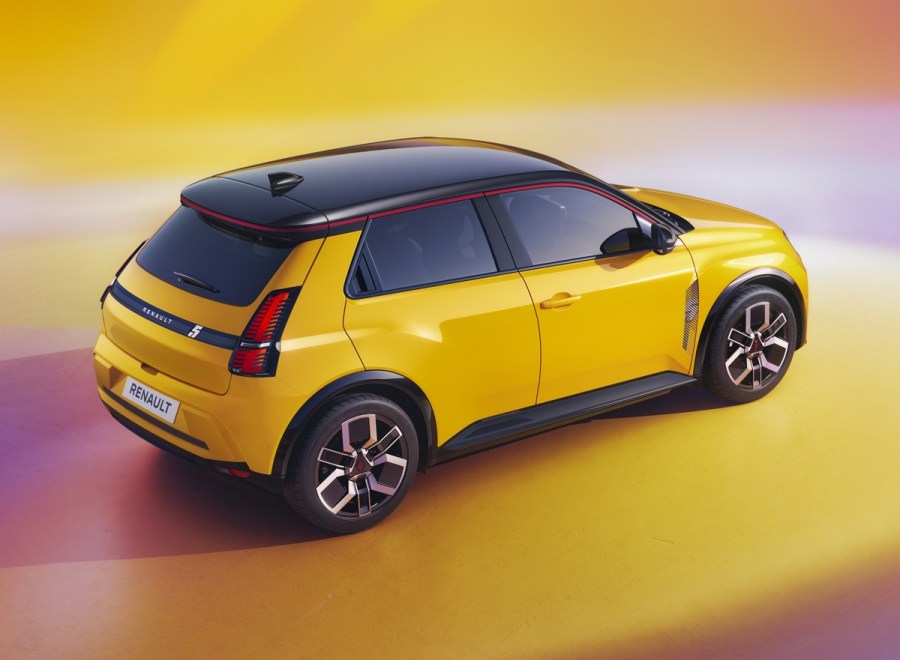
Produced between 1972-1985, the original Renault 5 was a 20th Century icon, with over 5.5 million units being sold during the course of its lifetime. Its distinctive styling set it apart from the rest of the supermini crowd back then, and there were even some genuinely sporty versions available too, partly due to Renault’s need to homologate cars for rallying. As a result, it gained a bit of a cult fandom, though the jury’s out on weather fans of the old car will be just as enthused with this one…
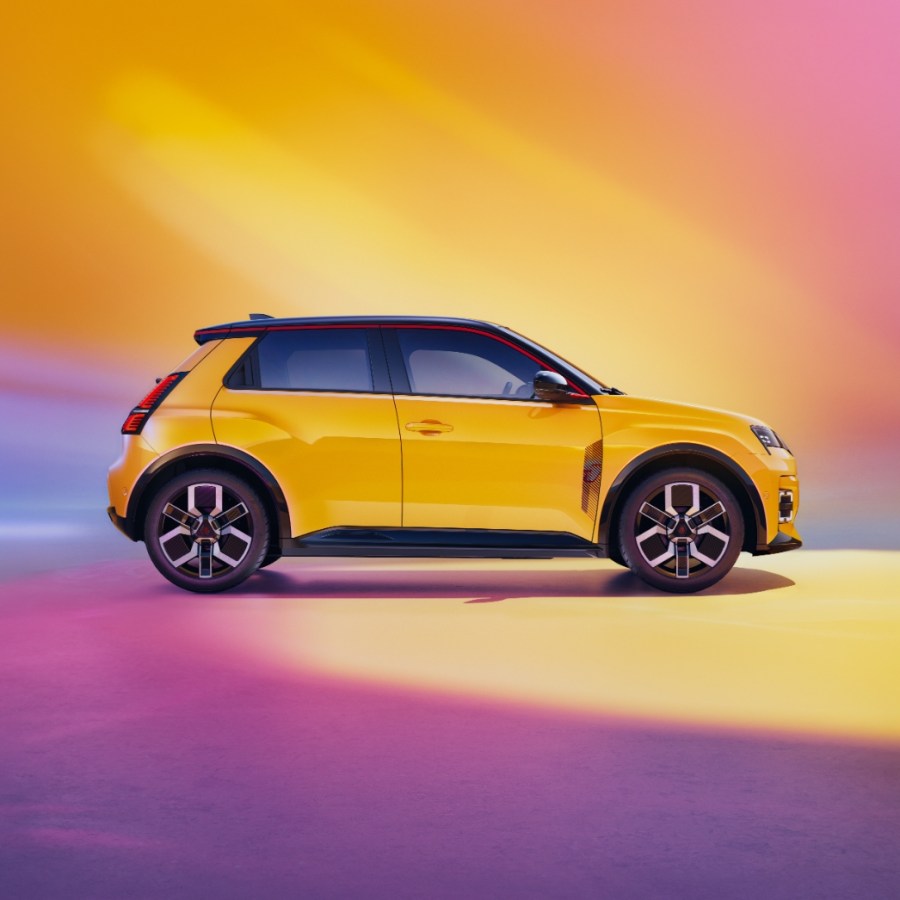
Old name, new ideas
See, the major reservation that fans of the original might have about the new Renault 5, is the powertrain. Yep, it’s an EV. Naturally, that won’t be to everybody’s taste, but maybe that’s not the point. Let’s face it, the way this car is being marketed, it has ‘youth-focus’ written all over it. So does Renault really care if the new 5 appeals to folks who can remember the original? I’d argue perhaps not.
Instead, this car takes the charismatic design cues from the original, and molds them into a package that’s more relevant to the modern world. The key, however, will be ensuring that the new Renault 5 doesn’t champion style over substance. So, to decipher whether they’re on the right track, here’s what we know about the car so far.
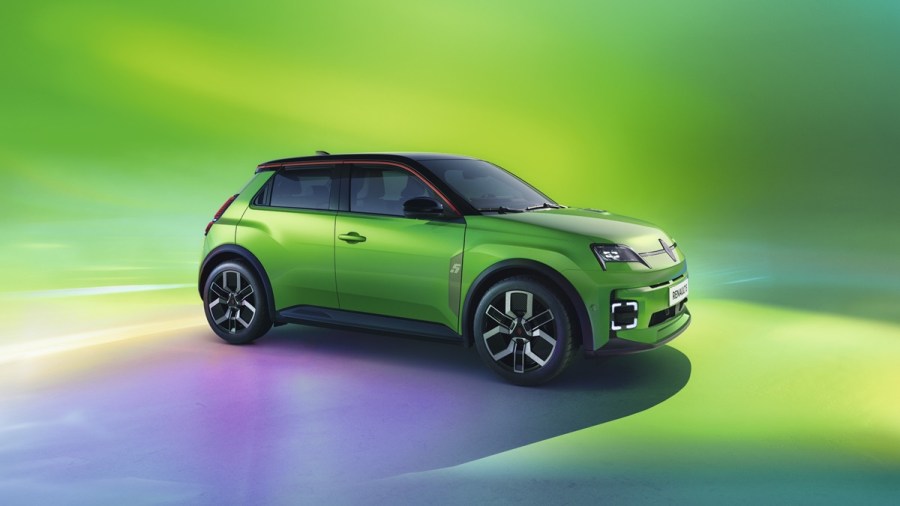
Motors and batteries
When the car launches in Q1 2025, drivers will be able to opt between two different powertrains. The upper tier motor outputs 110kW, which is roughly equivalent to 150hp, while the entry-level motor produces 90kW (120hp). The more powerful motor gets a 52kWh battery, offering up to 248 miles of range. On the other hand, the weaker motor gets a 40 kWh battery, which reduces range to 186 miles. The more powerful motor and smaller battery will also be available as a combination post-launch.
As far as performance goes, expect the Renault 5 to feel nippy. 0-62mph will take less than eight seconds, and you’ll be able to max it out to 93mph on an unlimited Autobahn near you. To be fair though, the standard Renault 5 is not a performance car, and neither was the original base-model 5. So, judging this car on pace would be unfair. And besides, those figures are perfectly good for a commuter car.
If you do want more speed from your Renault 5 though, perhaps in the ilk of the Turbo cars of old, Renault might have something up its sleeve. More on that later in this article…
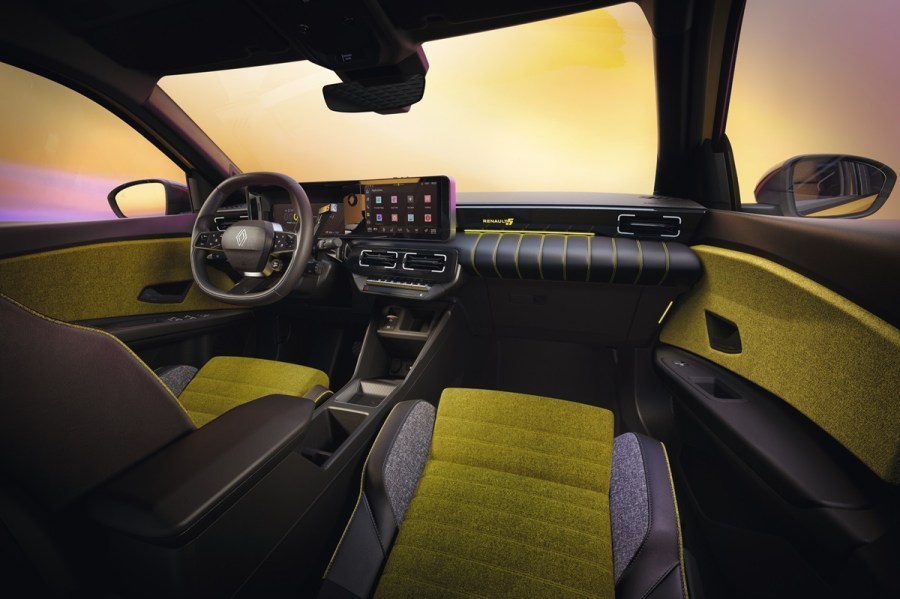
Bespoke platform
The new Renault 5 is the first car to bloom from Renault’s new AmpR Small chassis platform. In other words, it’s dynamically uncompromised. Renault assures the world that as much as this car is about being visually bold, it’s also about having fun handling traits that reflect that warm exterior. Nobody outside of the company has been able to judge that for themselves yet, but there are some promising signs in the details. For example, the new 5 features multi-link rear suspension, which is something that Renault wouldn’t normally equip on a car within this segment.
Proportionally, it’s certainly compact by today’s standards, sitting 1.77m wide and 3.92m long with barely any overhangs at either end. Weight is quoted at 1450kg for the 52 kWh version, and 1350kg for the smaller-battery option. For context, the MINI Electric weighs 1440kg and the Honda e tips the scales to just beyond 1500kg. So, while not featherweight by traditional standards, the new Renault 5 is well-placed for a modern car.
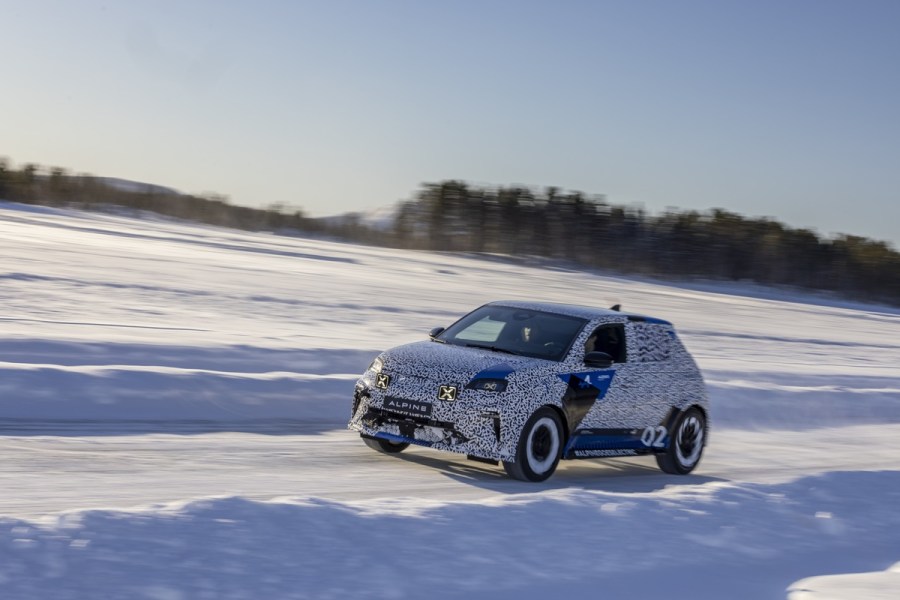
Alpine A290
So far, surface-level analysis suggests that the Renault 5 is shaping up to be quite an admirable little urban supermini – but not a sports car. However, this is Fast Car, so we wouldn’t be talking about it if there wasn’t some sort of enthusiast angle. And thankfully, there is.
Prior to the Renault 5’s official launch, news emerged that Renault’s sporting arm – Alpine – was busy testing an alternative version of the 5 in harsh winter conditions. That car, expected to be named the Alpine A290, will share its platform (and much of its body styling) with the Renault 5. However, as expected of the Alpine brand, it’ll aim to offer a more enthusiastic take on the dynamic potential of this little hatchback.
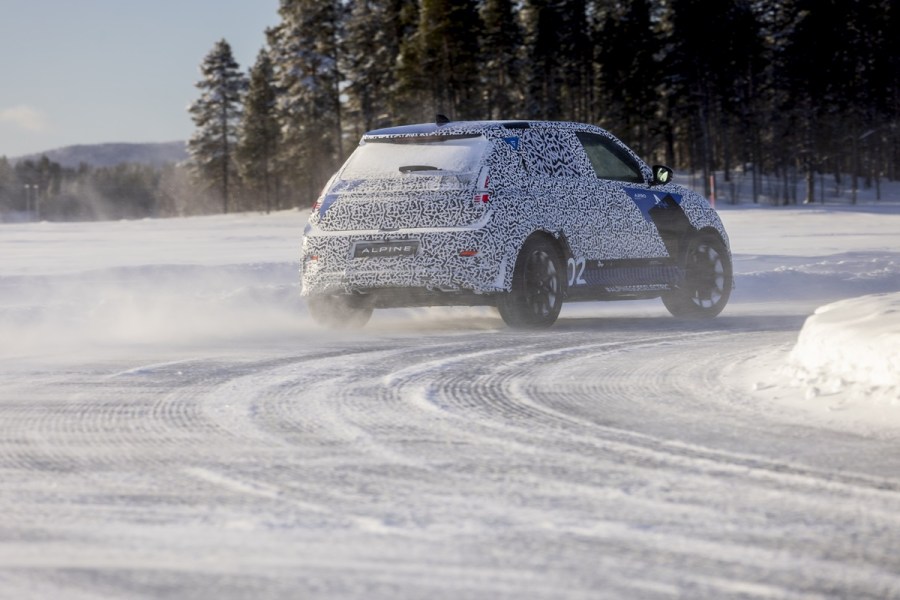
In addition to various tech tests, Alpine are known to also be working on the car’s powertrain responsiveness, steering precision, and overall agility. Considering these are the same people that gave us the wonderfully-poised Alpine A110, it’ll be eye-opening to see what they can achieve when building a pioneering electric hot hatch.
The Alpine A290 is set to be unveiled in full in June this year, so until then, anymore detail about the car is still firmly under wraps. Will it be more powerful? Will it feature significant chassis revisions? We’ll find out for sure in the summer, but I doubt it’ll be a mere a rebranding exercise.
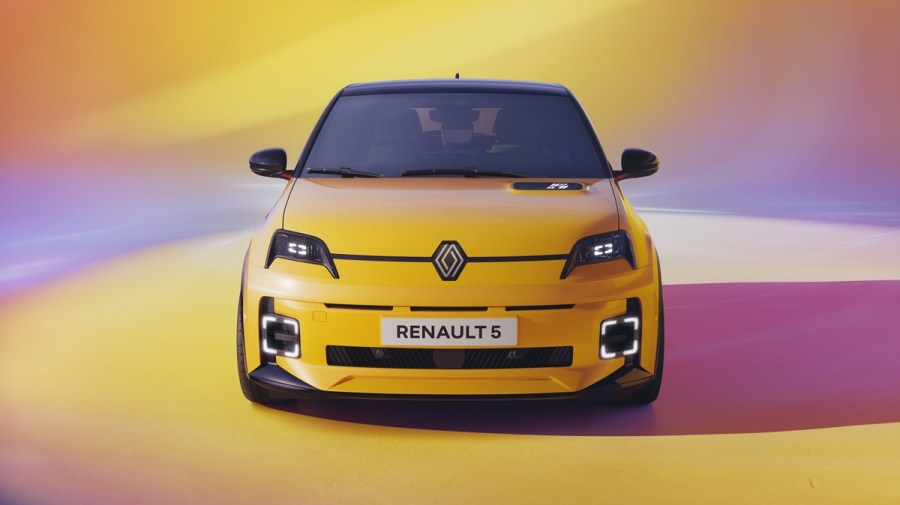
What’s the verdict?
Anyway, now you’re up to speed on all the core news about the new Renault 5. So, what do you think? A shameless cash-in on a beloved nameplate, or a welcome reincarnation of an old favorite? Let us know on the Fast Car social media pages! Or, if all this talk has got you reminiscing about the turn of the century, have a watch of the video below. I’m pretty sure you’ll like what you see…

